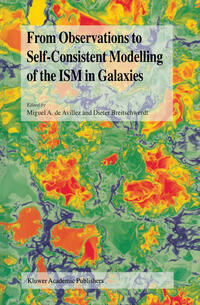
Research of the interstellar medium (ISM) has been advancing rapidly during the last 10 years, mainly due to immensely improved observational facilities and techniques in all wavelength ranges. We are now able to investigate the ISM in external galaxies and even the intergalactic and intracluster medium in great detail. Increased spatial and spectral resolution have provided us with a great deal of information on the interstellar gas in its various phases, the magnetic field and the cosmic rays, and of course, also the stellar component, which is the driving agent of the interstellar matter cycle. Since only fairly recently, a sufficient amount of computing power has become available to tackle these problems with some prospect of obtaining a self-consistent picture of the ISM, a major goal of this workshop was to bring together observers and theoreticians sufficiently close, so that intense discussions about the necessities and desiderata of modelling the ISM could be stimulated. Observers have shown in great detail on this conference of what is seen on all scales of the ISM, near and far, and what boundary conditions would be appropriate for realistic models, and theoreticians pointed out what assumptions and simplifications their codes need, and how future observations could test their models. As a first step towards this goal, some self-consistent numerical simulations with a minimum number of relevant physical processes were also presented on this meeting. There was wide agreement, that this approach - to keep observers and theoreticians in close contact and also in sometimes quite controversial discussions - will bear fruitful results in the near future.